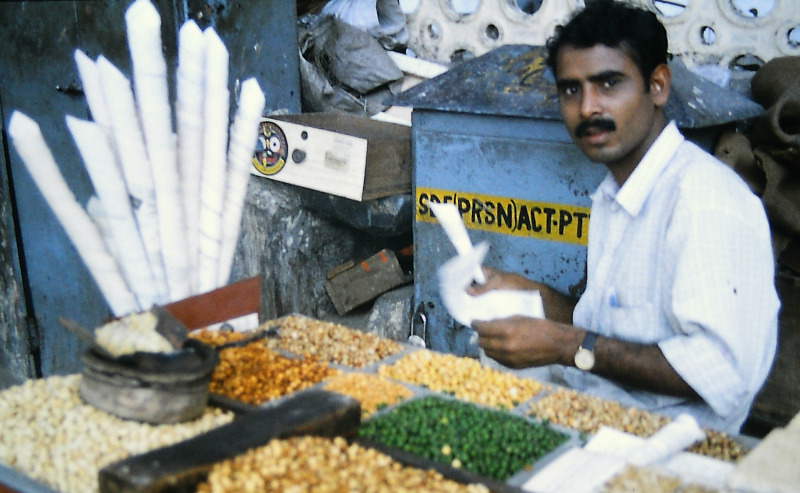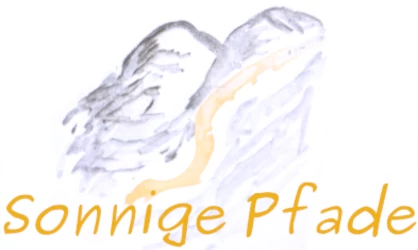
A sunny path travel story, first published in german.
With a friend I was in the Indian capital Delhi. We had some exhausting days in the heat of the Indian February and the dirt and noise of Old Delhi around the ears. Therefore, we decided to visit a more rural and relaxing spot of this beautiful country for a short trip. We decided to go to the small island of Diu. Diu and Daman, unlike the states of India, are territories directly subordinate to the central government in Delhi. That means there is no state government and also some rules are different from the rest of the country. Among other things, hard liquor flows quite freely on Diu, which is why the neighboring state of Gujarat conducts „tough“ border controls on re-entry and sometimes removes „liquor smugglers“ from the bus.

After a long train ride through the desert state of Rajastan and a ride on a „luxury bus“ we reached the island of Diu in the Arabian Sea. Only a narrow road leads over a dam and a small bridge to this island, which was occupied by Portugal for a long time. Only in the beginning of the 60s Diu was „liberated“ by India fighting a small war for it. The traces of the Portuguese are still clearly perceptible, especially in the architecture. Small forts protect harbor bays and typical catholic church buildings stand in the towns, between some villas with a rather „Mediterranean“ touch.
We find a nice guesthouse near the beach and with geckos on the ceiling. But they are everywhere at home here. The next day we go to a bicycle rental shop and get two bikes. These are so typical Indian, „hand-forged“ with heavy steel frames, a bit clumsy and cumbersome, thick tires (which is not so bad on the many sandy dirt roads) and anyway without lights. First we take a look at the city, climb around on one of the fortifications and I imagine how it once looked when the Portuguese still ruled this outpost in the Arabian Sea. I wonder if there were pirates and smugglers here. What will have been the relationship between the locals and the foreign masters? Was there anything that made this island significant besides its military strategic location? Was the „protecting power“ supplied from Portugal or could the remote post somehow sustain itself? At a typical Portuguese church, I wonder how many of the Indians here are actually Catholic?
We decide to drive further out „into the countryside“. Unfortunately, already after the first meters the first tire is flat, so that we have to turn around and get an other bycicle.

With it we explore the small Diu island, first to the west, until it goes no further. The ground is barren and there are dry grasses, a few herbs and shrubs on the dune-like hills. In places, rocks peek out of the ground, framing some beach coves. In and near the settlements, individual groups of coconut palms stand and cast some shade, with the typical green parrot birds fluttering around in between. We reach the western tip of Diu, with no further events worth mentioning. On the way back we stop in one of the bathing bays and enjoy the somewhat refreshing, clear water of the ocean. I fill up a small bottle further out – as a seawater nasal spray for the next cold. Some distance away, a few Indians are also bathing, the guys as usual in underpants, the girls completely dressed in silky saris.
Towards evening we drive back. Shortly before the city then the next flat tire. And it gets dark quickly – in February the days are still very short even in India. My friend decides to return the bike to the rental company. I go against it in the direction of the Guesthouse… at least in my opinion. The darkness is blacker in India than in Western Europe. Anyway, only in the centers and richer areas of big cities there is something like street lighting. On the island of Diu only a few lamps of flying traders illuminate their stalls and the surrounding area.

My way leads along a few streets that are almost completely in darkness. At a small square sit a few people, it looks like a family with adults and several children and adolescents in the light of a lamp. They are busy sewing, picking fruit and other things and talking. As I get closer and pass them on the left, they address me and I expect like in India everywhere „Whats name?… Where you come from?… Are you married?“
But surprisingly I suddenly hear „You are wrong!“, they repeat it several times and the older ones point in the right direction. How do they know where I am going? Why are they so convinced that I was just about to walk wrong? One of the typical wonders in India… When I mention the name of the guesthouse, they nod briskly and point again to the way to the right. A story that makes me believe more and more that I am in good hands in India, that nothing can go wrong, because everything works out like a miracle. Similar to the story with the lost passport in Varanasi or the delayed train on the way back from Hampi…
I arrive at the guesthouse on the path indicated by the Indians, where I tell my friend about this incident later in the evening. Clear that he can immediately come up with similar stories.
You like the Diu island travel story? Share it!
If you could enjoy this little story please feel free to share the link of the post on your social media profile! Thanks!


You n ur friend could not recognise the heart of DIU people. Yes, they are friendly, with all the humans. The Portuguese ruled and governed this Island for more then four century, and the original Diu people have learn from the Portuguese, how to be humble and peace living with all. They are for sure very hospitable. The Portuguese church Saint Paul dedicated to Our Lady Of Immaculate Conception has only 150 to 200 parishioners, rest has migrated to UK for earning purpose. Welcome, once again and really peep the heart of Diuense (People of Diu) in reality you will feel at home.
The story appreciated me, some didn’t hence, welcome if God desire we’ll meet.
Bye. God bless you n ur family. Love & Regards Sister.
Like your short and sweet travel blog without degrading my country and my Indian family
Thanks for your positive portrait of adventures